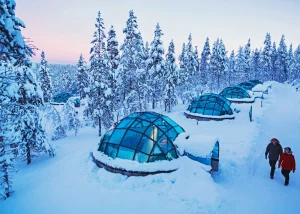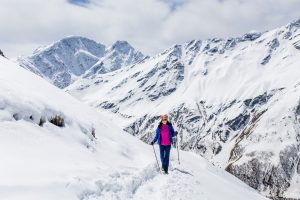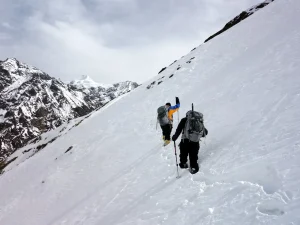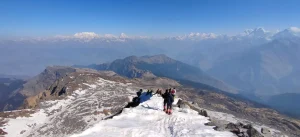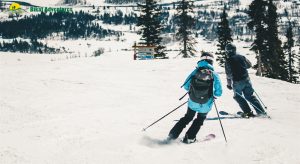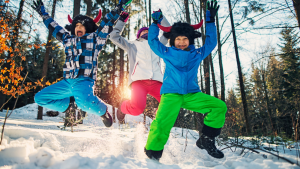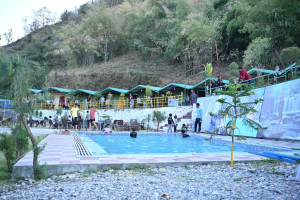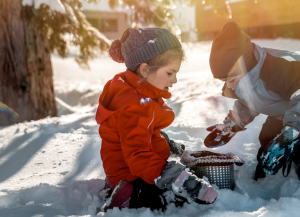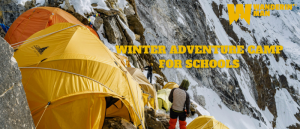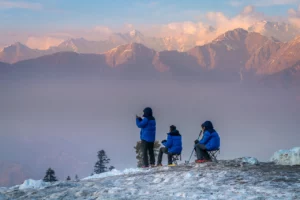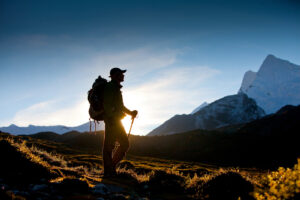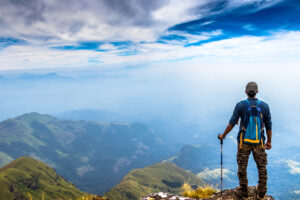Winter Adventures: Learning Beyond the Classroom in Outdoor Camps
Winter is often considered a season for staying indoors, keeping warm by the fire, and enjoying cozy comforts. But for children, winter presents a unique opportunity to explore nature, engage in experiential learning, and develop essential life skills. Outdoor winter camps are designed to take learning beyond the confines of the classroom, transforming cold, snowy days into exciting adventures filled with knowledge, teamwork, and personal growth.
In this blog, we will explore everything you need to know about winter outdoor learning camps—from benefits and popular activities to safety tips, preparation, and long-term impacts on children’s development.
What Are Winter Outdoor Learning Camps?
Winter outdoor learning camps are structured programs where children spend time in nature while participating in educational and recreational activities. Unlike traditional classrooms, these camps emphasize experiential learning, hands-on experiences, and practical skills. Children learn about science, nature, survival, and social skills while being actively engaged in outdoor adventures.
The winter season provides a unique backdrop for learning: snowy landscapes, frost-covered trees, frozen ponds, and winter wildlife all become part of the curriculum. Children are encouraged to explore, experiment, and problem-solve, making learning an adventure rather than a routine task.
Why Choose Winter Outdoor Learning Camps?
While summer camps are popular for outdoor activities, winter camps offer distinct advantages. Here’s why winter outdoor learning camps are a fantastic choice for children:
1. Hands-On Learning Experiences
Winter camps provide experiential learning opportunities. Children can conduct snow science experiments, track animal footprints, study winter weather patterns, and observe how plants and animals adapt to cold climates. These activities complement classroom learning, making abstract concepts tangible and memorable.
2. Encourages Physical Fitness
Outdoor activities such as snowshoeing, sledding, ice skating, and hiking keep children physically active even in cold weather. These activities improve strength, coordination, and cardiovascular health, promoting overall fitness in a fun and engaging way.
3. Boosts Social and Emotional Development
Being part of a winter camp fosters social interaction, teamwork, and leadership. Children learn to communicate effectively, collaborate on group projects, and develop empathy. Outdoor settings also reduce stress, helping children build resilience and emotional well-being.
4. Builds Independence and Self-Confidence
Winter camps encourage children to step out of their comfort zones. Activities like navigating snowy trails, building shelters, or participating in group challenges help children develop independence, problem-solving skills, and self-confidence.
5. Fosters Environmental Awareness
Experiencing nature first-hand encourages children to appreciate and respect the environment. Winter camps often include lessons on wildlife conservation, sustainable practices, and seasonal changes, helping children develop a sense of responsibility toward nature.
Popular Winter Outdoor Learning Camp Activities
Winter camps offer a rich variety of activities that combine fun, education, and skill development. Here are some of the most popular activities:
1. Snow Science and Experiments
Children learn about the properties of snow and ice through experiments. They may study snowflake formation, measure snow density, or explore how temperature affects freezing and melting. These activities introduce basic scientific concepts in a hands-on and engaging way.
2. Wildlife Observation and Tracking
Winter provides a unique opportunity to observe animals in their natural habitat. Children can identify animal tracks in the snow, understand how wildlife adapts to cold, and study behavior patterns. This fosters curiosity, observation skills, and ecological understanding.
3. Adventure and Sports Activities
Winter camps often include activities such as sledding, ice skating, snowball games, skiing, and snow tubing. These activities keep children active and teach coordination, courage, and perseverance. Adventure-based learning also encourages children to overcome challenges and take calculated risks.
4. Nature-Based Arts and Crafts
Using natural materials like pinecones, twigs, and snow, children create artwork that reflects the winter landscape. Nature crafts enhance creativity, fine motor skills, and environmental appreciation. They also provide an outlet for self-expression.
5. Survival Skills and Team Challenges
Camps teach children essential survival skills such as building shelters, reading maps, understanding weather patterns, and basic first aid. Group challenges such as snow obstacle courses or scavenger hunts foster teamwork, leadership, and problem-solving skills.
6. Storytelling and Educational Workshops
Evenings at winter camps often include storytelling, interactive workshops, and group discussions. These activities develop communication skills, critical thinking, and cultural awareness.
Academic Benefits of Outdoor Winter Learning
Winter outdoor learning camps are more than recreational—they contribute significantly to academic growth:
- Enhanced STEM Learning: Experiments with snow, ice, and winter ecosystems enhance understanding of physics, chemistry, and biology.
- Critical Thinking: Problem-solving challenges, such as constructing snow shelters, enhance analytical and logical skills.
- Observation and Recording Skills: Activities like wildlife tracking improve attention to detail and scientific documentation.
- Interdisciplinary Learning: Combining nature study, physical activity, art, and storytelling encourages holistic learning across multiple subjects.
Emotional and Social Benefits
Beyond academics, winter camps nurture emotional intelligence and social skills:
- Teamwork: Group activities and cooperative games foster collaboration and conflict resolution.
- Resilience: Facing outdoor challenges builds mental toughness and perseverance.
- Confidence: Successfully completing tasks and adventure challenges boosts self-esteem.
- Stress Relief: Outdoor time in fresh air and natural light reduces stress and promotes overall well-being.
Preparing Children for Winter Outdoor Camps
Preparation is key to ensuring children enjoy a safe and comfortable winter camp experience. Here are essential tips:
1. Dress in Layers
Layering helps retain warmth. Children should wear moisture-wicking base layers, insulating mid-layers, and waterproof outer layers. Hats, gloves, scarves, and thermal socks are essential to protect against frostbite.
2. Proper Footwear
Waterproof boots with insulation and grip prevent slipping and keep feet warm. Proper footwear is essential for safety and comfort in snowy terrain.
3. Nutrition and Hydration
Children need energy to stay active in cold weather. Pack healthy snacks such as nuts, fruits, and energy bars. Encourage regular water intake, even when children may not feel thirsty.
4. Sun Protection
Snow reflects UV rays, increasing sun exposure. Sunscreen and sunglasses or goggles protect children’s skin and eyes.
5. Safety Education
Children should be briefed on safety measures such as staying with the group, recognizing signs of frostbite, and following instructions from camp staff.
Choosing the Right Winter Outdoor Learning Camp
Selecting the right camp ensures a safe, educational, and enjoyable experience:
- Age-Appropriate Programs: Check if activities are suitable for your child’s age and skill level.
- Qualified Staff: Instructors should be trained in outdoor education, child safety, and first aid.
- Camp Facilities and Location: Look for camps with shelters, emergency protocols, and diverse natural settings.
- Safety Measures: Ensure proper supervision ratios, emergency plans, and cold-weather precautions.
- Curriculum and Activities: A well-rounded mix of science, adventure, arts, and teamwork ensures holistic development.
Real-Life Learning in the Winter Outdoors
Outdoor winter learning is about more than just fun—it creates lasting memories and lifelong skills. Children return with:
- Improved observational and analytical skills
- Stronger physical fitness and coordination
- Enhanced social abilities and teamwork
- A deeper connection with nature
- Increased independence, resilience, and confidence
By experiencing challenges and adventures firsthand, children learn adaptability, problem-solving, and creative thinking, skills that serve them throughout life.
Safety Tips for Winter Outdoor Camps
Safety is paramount in winter camps. Parents and camp organizers should ensure:
- Weather Monitoring: Keep track of temperature, wind chill, and snowfall to plan activities safely.
- Emergency Protocols: Camps should have first aid kits, communication devices, and clear emergency procedures.
- Appropriate Clothing: Dress children in layered, waterproof clothing to prevent hypothermia.
- Supervision: Maintain appropriate adult-to-child ratios to ensure supervision during activities.
- Hydration and Nutrition: Cold weather can mask thirst, so encourage regular water intake and snacks.
Testimonials and Experiences
Parents and children often report transformative experiences from winter camps:
- “My daughter returned with so much excitement! She learned about wildlife tracking and even built her own snow shelter. She gained confidence and a love for nature.” – Priya S., Parent
- “Winter camp was more than fun. I learned science through experiments in the snow, and the team activities taught me leadership and problem-solving.” – Aarav M., Camper
Conclusion
Winter outdoor learning camps offer a unique opportunity for children to learn, grow, and explore beyond the classroom. These camps combine physical activity, hands-on learning, adventure, and personal development in a safe and engaging environment.
From snow science experiments and wildlife observation to team-building exercises and survival skills, every activity in a winter camp is designed to enhance children’s physical, cognitive, emotional, and social development. By stepping into the winter wilderness, children not only enjoy memorable adventures but also develop skills and values that last a lifetime.
This winter, embrace the cold and let your child experience the magic of learning beyond the classroom—because the best lessons often happen when the snow crunches under your boots and curiosity leads the way.

